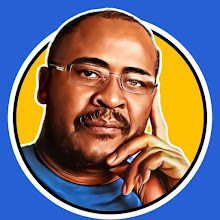I have been prompted to write this article based on findings from several discussions in the past year on Facebook and other social circles that I have come across. In fact when we look at a broader picture of tribalism, the majority of Africans are not able or willing to forsake their tribal allegiances, which I’m not asking them to do. So what do we do with this mind set?
How can we maintain tribal identities without using them as a conflict creating mechanism between the different tribes? I believe the key to improved relationships in any situation is good communication, people from different tribes need to understand each other’s tribal heritage if they are to be accommodative and less hostile towards each other. Tribes can be a contradiction in today’s Africa where some may see them as an evil if their tribe is not in power and a benefit if their tribe is in power. This I believe is due to the nature of our out-dated political and government systems where there are no checks and balances to correct such misinterpretations. This creates an uncomfortable climate of absolute power resting in the hands of the domineering and ruling ‘Tribe’ and naturally extends down to the ‘people’ where those leaders come from. So what should be done?
Firstly we as people need to learn to appreciate our diverse natural being. We have to accept that humans are different in nature regardless of the colour of their skin or gender orientation. We need to appreciate that as Africans we have historical links that we treasure and this in itself is not inherently evil. Perhaps we could start by making our welfare systems more accommodative of our cultural differences. Are we addressing our cultural institutional framework (if any) effectively or have the colonially adopted systems weakened them? Could it be if you weaken the family you weaken the nation? Africans traditionally belonged to extended families, which in turn belonged to a clan, and which in turn belonged to a tribe.
Since Zimbabwean Independence have our leaders really tried and failed to make the great leap from individualism and tribal groups to national citizens? I think it’s time we started embracing diversity in a more productive manner, this preconceived mentality that for one to have allegiance to a nation the benefits must outweigh those of belonging to a particular tribe must be erased. Like most African nations individuals are defined as a citizen only on paper where your primary designation is that of an ethnic group. For example on paper you might be Zimbabwean but your benefits or ill fate is determined by whether you are Ndebele or Shona. This schizophrenic national mind set permeates Africa and its denial only compounds the problem.
Though there are still a sizeable number of Zimbabwean citizens who have respect and have primary allegiance to the tribal structures, the central government is viewed as an outside force that is often hostile and not relevant. I submit that the national government would have more legitimacy if all tribes were represented perhaps not so much in parliament but proportionally in the Senate. All issues in government would be examined using dual standards; a tribal and a national standard. Balance both interests. In most parliaments an upper house should be formed consisting of statesmen who command the most respect and support from each tribe. All tribes would be designated two members very much like the US Senate. This group will balance the State interests versus the tribal interests. An equal representation will ensure that the rights and interests of minority tribes are not trampled upon by majority tribes.
The challenge to this approach would be the modification of the current traditional roles to be inclusive of other senior citizens who have also influenced positive change in society through their contributions to the development of Zimbabwean Society. These could include senior and retired individuals from the various sectors like religion, business, sports, music etc. In principle the Senate should not be composed of retired political players only but include all key members who have made a substantial contribution to the development of Zimbabwean society.
I think one of the biggest complications to democracy in Africa is the influence Western Culture has on our society it becomes almost impossible to draw a line of between African traditional values and Western cultural values. This is further complicated by the failure by our academics and perhaps the United Nations as an International monitoring body, in trying to translate similarities of basic human rights in a cultural relevant context. In other words people may be made to believe that ‘human rights laws’ are a western creation when in actual fact ‘UBUNTU’ and ‘HUMAN RIGHTS’ are the same principles with different names.
So then what makes us have these very strong feelings of being different from other humans? Are we psychologically traumatised by our past experiences? What kind of healing can address the tensions that exist between these traditional identities? If I changed my surname and spoke the language of my supposedly opposition tribe would I then be more acceptable as a Zimbabwean? What makes people think lessor of other humans?
It’s time we seriously started seeing our differences as strengths not weaknesses, our strengths should not be based on our tribal identities, nor gender, nor race, nor disability, we should be able to complement each other where we are weak, learn from each other’s mistakes instead of seeking to justify who is to be blamed for what. Once we can start addressing our differences in a complimentary way we will be one step closer to creating a more resourceful borderless environment. We need to start bringing down all these imaginary boundaries if we are to develop a better global society.


No comments:
Post a Comment